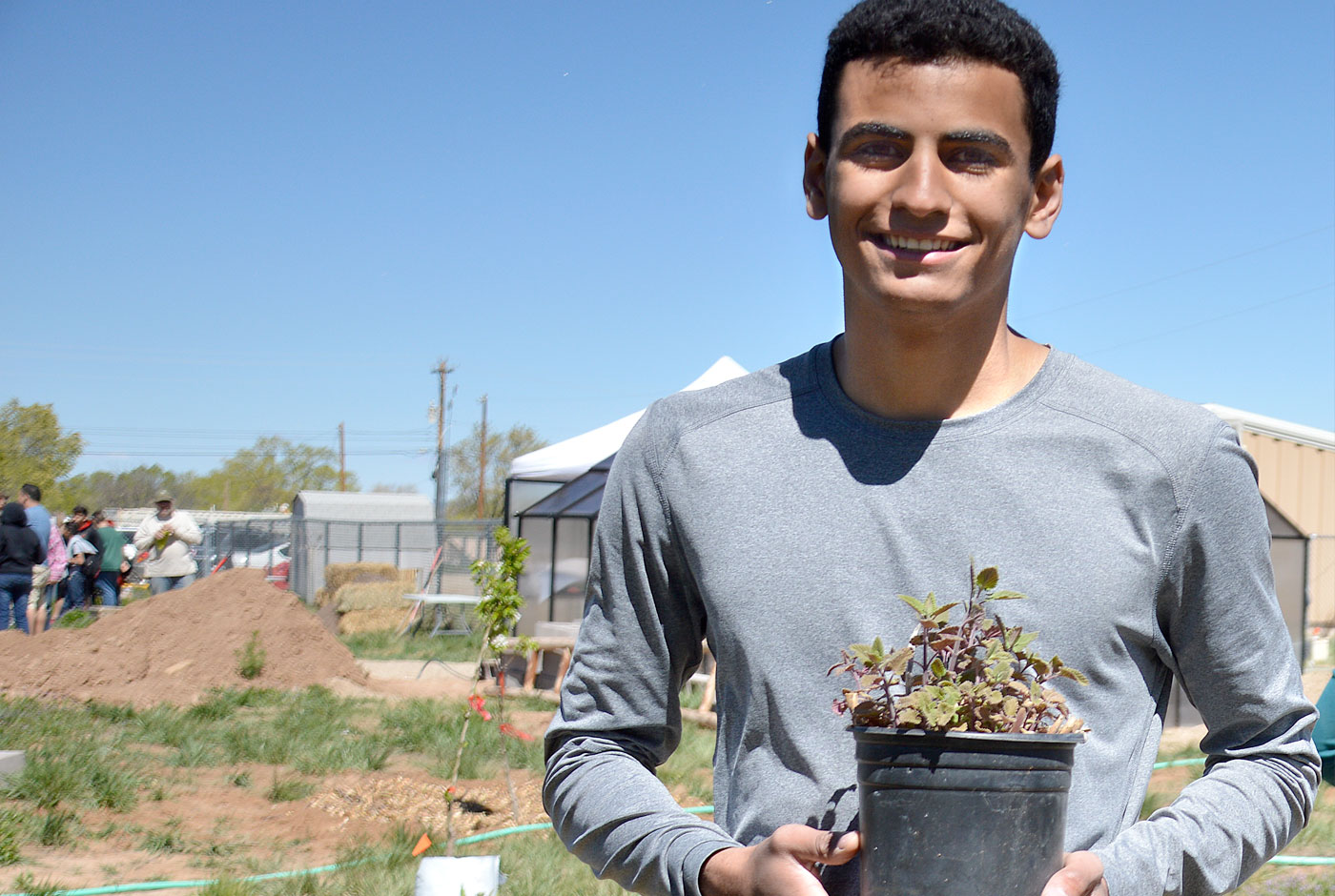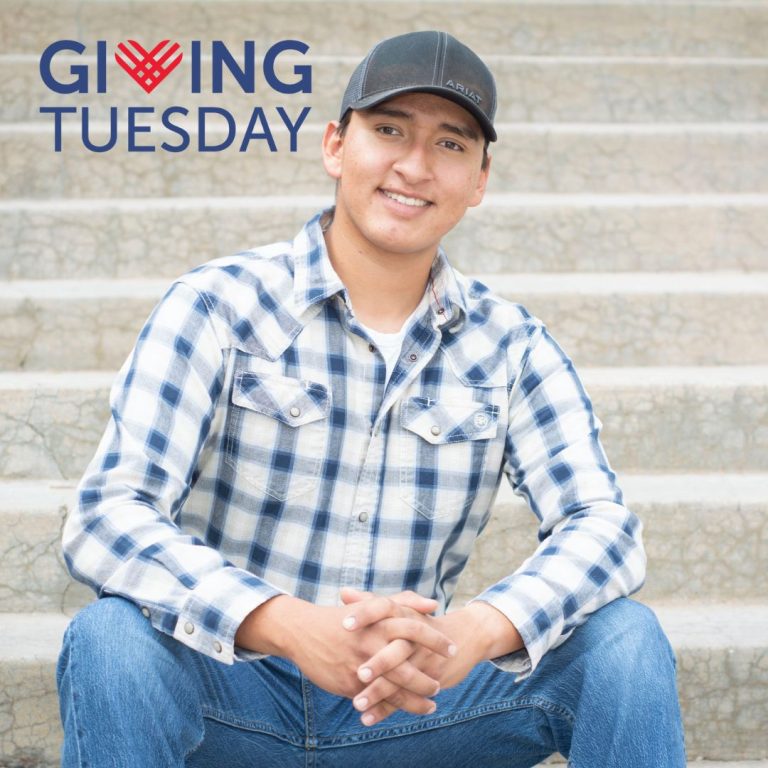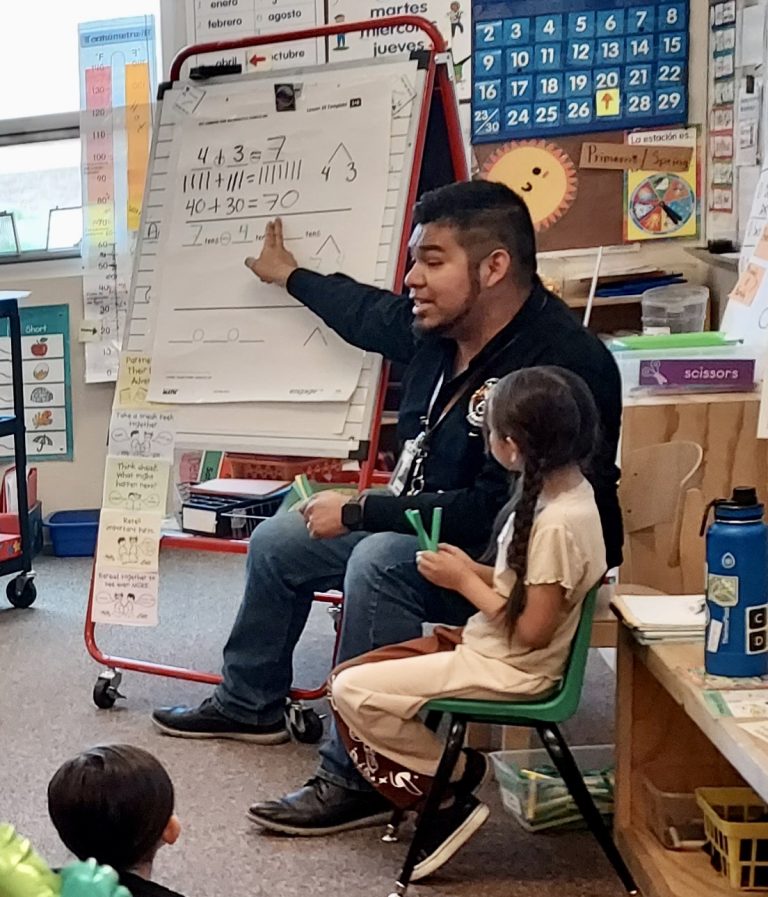For Los Alamos Employees’ Scholarship winner Khaled Khweis, growing up with three sisters and two brothers brought a spirit of competition. They had lively dinner discussions with their parents, asserted their points of view, disagreed, took sides, and often tried to outdo one another in academics.
“Arguing is an extension of our family dynamic. Basketball games with my brothers can be brutal,” said the Taos native. But he also comes from a family that works collaboratively with mutual respect. Both qualities of confident individualism and teamwork have served Khaled well.
Pursuing the American Dream
In the early 1990s before he was born, Khaled’s parents emigrated from the Middle East in pursuit of the “American dream,” following an uncle already living in New Mexico. After living in Gallup for 5 years, Khaled’s father visited Taos, was captivated by the beauty of the mountains and the Rio Grande Gorge, and chose it as the place to raise his family.
“My parents’ education didn’t carry over to this country, so they couldn’t work in their professional fields,” said Khaled of his father, a former criminal lawyer in Cairo, and his mother, who taught English at a United Nations school in Jerusalem. The importance of education and creating opportunity was stressed throughout the family. His father and five uncles opened small jewelry and art shops to earn a living.
Khaled’s older siblings helped one another in school and with homework, guided by their mother with her education background. The local Head Start program gave Khaled an early focus on learning before Kindergarten. It was soon discovered that he was a gifted student when he was reading at the age of four.
Khaled developed an interest math and science, and the subjects came easy to him. Inspired by his older sisters, he spent time developing science fair projects and competed at the state level for two years with research related to mapping weather patterns from historical data and analyzing language using the mathematical Fibonacci sequence. He mentored younger students at a Ranchos Elementary School in science, helping them with homework and their science fair projects.
“These kids are a lot smarter that you’d think. They understand chemical properties and complex ideas,” he said.
While maintaining a rigorous academic course load in high school, Khaled spent evenings during parts of the school year bussing tables at a restaurant to earn money for personal and school expenses and college savings. The family-owned businesses had some success, but the extended Khweis family often had to make sacrifices. Khaled, his siblings, and cousins pitched in.
“We all worked without getting paid,” he said. “It all goes straight to the family. My mom worked three jobs at one point.”
Khaled helped his mother prepare Middle Eastern foods in a professional kitchen at a local business incubator to sell to grocery stores. The work coincided with his participation in the high school’s Culinary Arts Program that builds students’ knowledge and skills in food prep, customer service, restaurant management, handling money, and marketing. The students run a school café, open to the public on Thursdays, manage school concessions, and cater private events on weekends and during the summer. Tips are spilt by the students, but all other earnings support the self-sustaining program.
He describes the experience and his two certifications for restaurant management and food safety earned through the National Restaurant Association as “good life skills to have.”
Effective argument skills pay off
Drawing upon his competitive nature and confident ability to ague his point, Khaled naturally gravitated toward Speech and Debate club as an extracurricular activity. He spent countless hours researching topics, writing cases, practicing with the team, coaching others, and competing. He learned to argue the pros and cons of subjects like GMOs, private prisons, military spending, and the Palestinian-Israeli conflict. The past three years, his Public Forum debate team has qualified for the National Debate Tournament.
“After doing the research, my mind was changed on certain issues. In some cases, I don’t know my opinion on a topic when I start, but the experience taught me to be a more objective thinker,” said Khaled.
Environmental issues, agro-ecology, and urban forestry became his areas of interest. Appointed by the mayor to serve as student representative on the Taos Tree Board, Khaled worked with the group to educate the community about tree maintenance, the economic and societal impacts of trees in public spaces, and the importance of acequias.
“You can actually place a dollar value on trees,” he said. “Studies link them with increased profits for businesses, and they provide additional benefits like heating and cooling.”
As a parting gift to the high school, the class of 2017 planted an orchard on an adjacent piece of barren property. Khaled worked with his environmental science teacher to write a grant that funded the project. Students collaborated with local professionals to determine the best fruit trees for growing conditions in Northern New Mexico. They tested and prepared the soil, planned the space, dug trenches, and installed an irrigation system, with Khaled co-managing the student coordination, making calculations, and contributing with manual labor. The planting was done in celebration of Earth Day during a natural resources career expo. The school’s Culinary Arts program provided lunch.
Scholarship supports growth and branching out in new directions
With support of a $20,000 Gold Scholarship from the LAESF, Khaled will attend Columbia University in New York City this fall to study environmental engineering and political science.
“My goal is to influence environmental policy. Whether as a researcher, policy-maker, or environmental lawyer, I want to be able to introduce scientific progress as policy and increase public awareness regarding environmental issues.”
The big city will be a change from the small community he’s used to, but his parents encouraged him to branch out and experience a different place, as they did in their own lives. Columbia has a campus in Jordan, where Khaled hopes to study and connect with family living there.
This summer Khaled is a student intern at LANL in Project Management under the mentorship of Jim Jones. He is a member of a student-led team planning and designing renovations and technological upgrades for underutilized Lab spaces.
“As I spend more time in the department I’m learning about how complex these planning processes are. In our student presentations, the employees say that our department (PADCAP) is the heartbeat and foundation for the Lab, and now I’m starting to see how true that statement really is.”
Khaled looks forward to returning to Taos in the future to see the high school orchard and community flourish and foresees students in the Culinary Arts program localizing their ingredients from the orchard and, eventually, making pies from the fruits of his labor.



